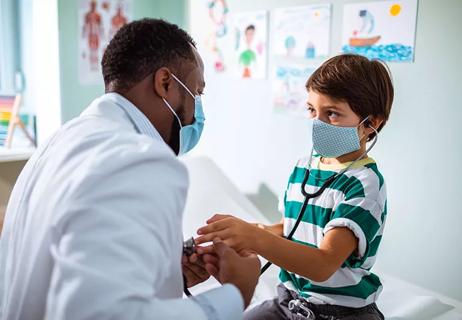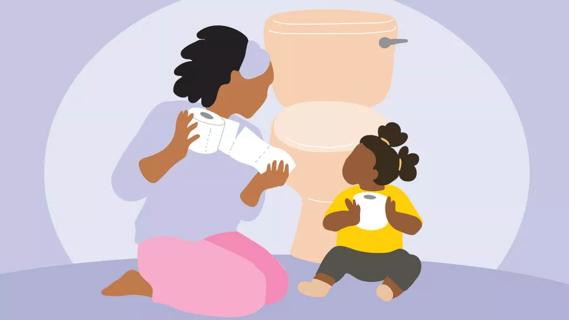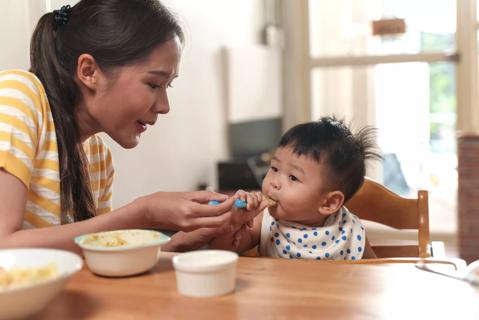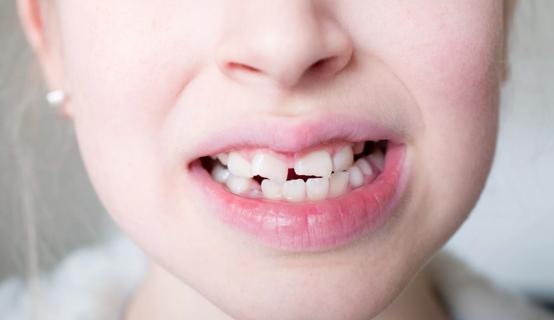It all comes down to asking the right questions during well-child visits

The school year has started for many children across the country. For some, nothing has really changed since the pandemic started — they’re still learning remotely. Others are returning to classrooms with backpacks and masks in tow. As for parents, many are still grappling with how to keep their children safe, happy and healthy whether they’re at home or at school.
Cleveland Clinic is a non-profit academic medical center. Advertising on our site helps support our mission. We do not endorse non-Cleveland Clinic products or services. Policy
According to pediatric physiatrist Lainie Holman, MD, the American Academy of Pediatrics hasn’t wavered on its stance that children should go back to school in person while taking steps to limit the spread of COVID-19.
“In a perfect world, all children would attend school in person,” says Dr. Holman. “I think most pediatricians would agree that having children in a brick-and-mortar school is better for them in general and in terms of development. This is especially true for children who are marginalized, for whom school is a safety net.”
Dr. Holman says that it’s not just important for children with disabilities to attend school in person. It’s absolutely necessary so they can thrive.
“Although some school districts may believe it is easier or more cost-effective to keep these children on remote-learning plans, these are the kids who need to be in school the most. They are also the kids who are least likely to have good internet access and support for virtual studies at home.”
Studies have shown that children with disabilities are disproportionately impoverished and otherwise marginalized. Attending school allows children with special needs to get access to helpful resources and necessities like school lunches, educational support and opportunities to participate in extracurricular activities.
“It’s not appropriate to keep these kids at home while children who don’t have disabilities return to school. It’s also not legal,” Dr. Holman says. The Individuals with Disabilities Education Act (IDEA) of 1975 guarantees that children with disabilities have access to a free and appropriate public education.
With approximately 14% of the 50.8 million children enrolled in public schools in the U.S. in 2019 receiving special education services, this should be a major concern.
One study in particular shows that a good number of pediatricians (about 85%) are willing to assist parents in obtaining special education services when needed. However, during well-child visits, only 61% of those pediatricians asked parents if they needed help. Less than half of the pediatricians in this study provided parents with information on community services and only 13% provided educational materials.
Dr. Holman believes that pediatricians should ensure that children with special needs are in environments where they can learn and grow. She says that pediatricians should make the most of each well-child visit by asking if an Individualized Education Plan (IEP) has been developed and if the IEP is right for each child.
Right now, it’s important for pediatricians to find out if children are learning in person, remotely or doing both. If the school isn’t providing a quality IEP for a child, that’s when a pediatrician can serve as an advocate and assist teachers and administrators in developing a better solution.
“Sometimes, just asking the question is helpful. Most schools still respond to a doctor’s note that encourages the school to do right by the child,” Dr. Holman explains.
Dr. Holman also suggests that well-child checks be done routinely for children with disabilities and that pediatric practices with care coordinators should reach out to families they haven’t seen in a while. “Children with disabilities have a higher incidence of abuse and may develop more medical complications when they aren’t in a school system,” she says.
“I’m concerned that the access to — and utility of — technology is not equitable for children with disabilities. A child with internet access who can see, hear and move well is going to have an easier time with online learning than a child with disabilities. Additionally, many kids with disabilities need one-on-one instruction or an aide for things like note taking or test taking. Many parents are unable to provide that level of support. Of note, many of these children only receive therapy through schools, especially in rural areas. We may need to help identify alternative therapeutic options,” says Dr. Holman.
While Dr. Holman wants to see children with disabilities have access to everything they need for a successful school year, she still has some concerns about in-person learning.
“There’s a risk to the children, as well as the caregivers who work in close contact with them. I recommend that these aides wear face masks and face shields or other eye protection. Children should also wear masks as they are able. ”
Learn more about our editorial process.

Here’s what to consider when it’s time to choose your child’s doctor

Set your child up for potty training success by waiting until they’re ready, keeping the pressure low and going heavy on the praise

In babies under 12 months, honey may cause a serious illness called infant botulism

You can help strengthen your child’s immune system by focusing on hand washing and staying up-to-date on their vaccines

Lanugo — the soft, fine hair that develops in utero — is harmless and will shed within a few weeks

Crossed eyes in a newborn are fairly common, typically harmless and usually go away

A dental emergency, quick action is key to preventing long-term damage

Severe and debilitating headaches can affect the quality of your child’s life

Your metabolism may torch 1,300 to 2,000 calories daily with no activity

A gentle touch in all the right places may help drain your sinuses